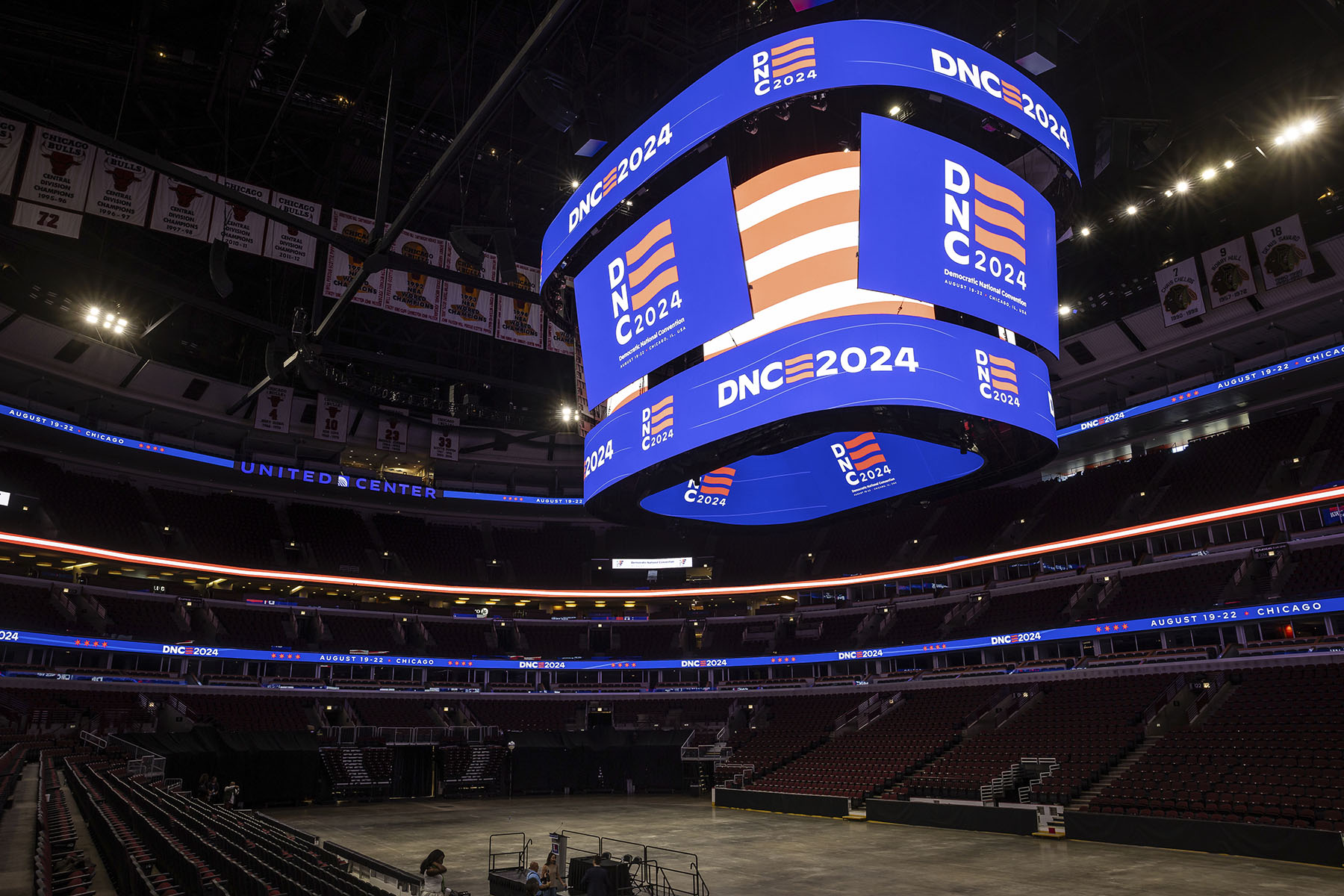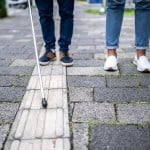Your trusted source for contextualizing the news. Sign up for our daily newsletter.
This year in Chicago the Democratic National Convention is making changes big and small to better accommodate its 850 disabled attendees, including 560 disabled delegates, who made accessibility requests to the event’s organizers.
“We made a commitment this year for accessibility and inclusion to be an important part of the convention in all aspects, in everything we do,” said Robin Jones, accessibility adviser to the Democratic National Convention Committee.
Wide-ranging accessibility considerations center attendees with many different kinds of disabilities, including people with limited mobility, people who are blind or low vision, people who are deaf or hard of hearing and people who are autistic or who have sensory sensitivities.
“We’re trying to be inclusive of everyone’s needs. There are a variety of different people with different disabilities attending,” Jones said.
In addition to accessibility on the ground, the convention will be livestreamed with American Sign Language interpretation, live captioning, audio description and in Spanish from its two locations in Chicago from August 19 – 22.
Some of the changes are relatively small: Autistic and other attendees with sensory sensitivities will be given kits containing noise-canceling headphones for the first time this year, and scooters will be available for attendees to borrow who cannot walk long distances. Organizers have asked attendees to refrain from wearing strong fragrances to accommodate those with sensory and chemical sensitivities, and while they say masking is “100 percent optional,” it is encouraged for those who feel they need it.
One of the biggest changes at the DNC this year: For the first time, delegates in wheelchairs will be able to sit with their state delegations on the convention floor instead of in a separate wheelchair section using a newly installed temporary ramp.
Emily Voorde was a delegate for her home state of Indiana in 2012 and will be returning as a delegate in 2024. Voorde uses a wheelchair, and is excited to sit with her delegation this time with the addition of integrated, inclusive seating.
“At these conventions, there’s a lot of state-based unity, camaraderie and coalition building. [Separate wheelchair seating] really negatively impacted my experience. I didn’t have that opportunity to spend as much time with my fellow Hoosier delegates,” Voorde told The 19th. She was grateful that the wheelchair section had a clear line of sight but wished she could have had an experience more like the one her walking colleagues participated in.
“2012 was really isolating,” Voorde said. “Being able to sit together with the Indiana delegation is immensely important to me.”
When asked what other accessibility changes she was most looking forward to, Voorde highlighted accessible transportation. The DNC will provide wheelchair-accessible buses to shuttle attendees from 45 different hotels to major convention center sites.
“It takes a lot of stress out of the experience,” Voorde said.
Voorde was also particularly excited to hear about the installation of wheelchair repair stations at Chicago airports. The stations are permanent and will remain after the Democratic National Convention has ended. In 2022, over 11,000 wheelchairs were lost, damaged or destroyed by U.S. airlines. Twice during air travel, Voorde’s wheelchair has been “totaled” and rendered completely unusable. But numerous other times, Voorde said she would have benefitted from the ability to make smaller repairs on her own.
“Damage to a chair can literally stop you in your tracks and prevent you from getting to wherever you’re going. So hearing that there will be repair stations feels really like a step in the right direction,” she said.
There will also be major improvements for blind and low-vision delegates and attendees like Janni Lehrer-Stein. This is her third time serving as a delegate for California — she also participated in the 2016 and 2020 conventions.
“So much has changed since 2016. I think this might be the most accessible convention in the history of the nation,” she said.
Lehrer-Stein is most excited about the addition of live audio description. Human describers explain where people are on stage, what they are wearing, the hand gestures they make and other information that is not readily available to blind and low-vision audience members. This service is provided in a separate livestream blind viewers can tune into using their phones or other smart devices.
“When you’re blind, sometimes you have to guess who is speaking or who just came on stage. Audio description at things like live events and movies has been life-changing,” Lehrer-Stein said.
This is not the first year that the Democratic National Convention has offered audio description — it was added to the 2020 remote convention. But this will be the first time audio description is provided for the live, in-person event.
Lehrer-Stein also praised the thoughtfulness that Jones and her team have had while approaching accessibility at the convention.
“When I land in the Chicago airport, there will be someone there who can assist me and has been briefed on my accommodation needs. I have a much greater degree of confidence attending the convention than going to a concert at a stadium, because I know these things have been thought through,” Lehrer-Stein said.
To check your voter registration status or to get more information about registering to vote, text 19thnews to 26797.





